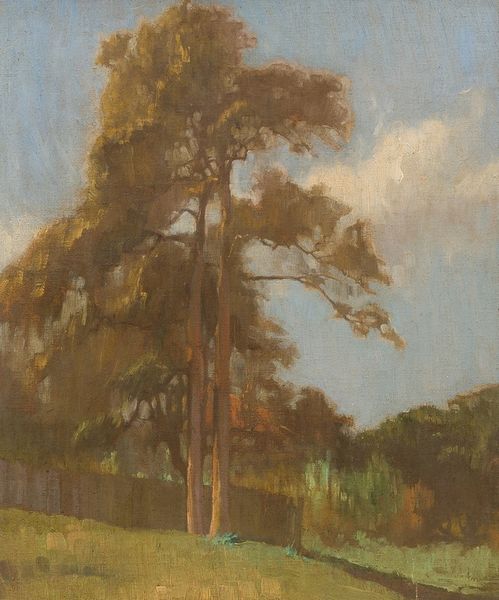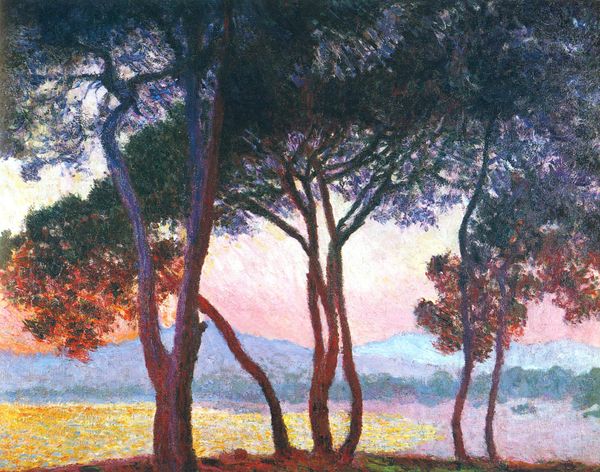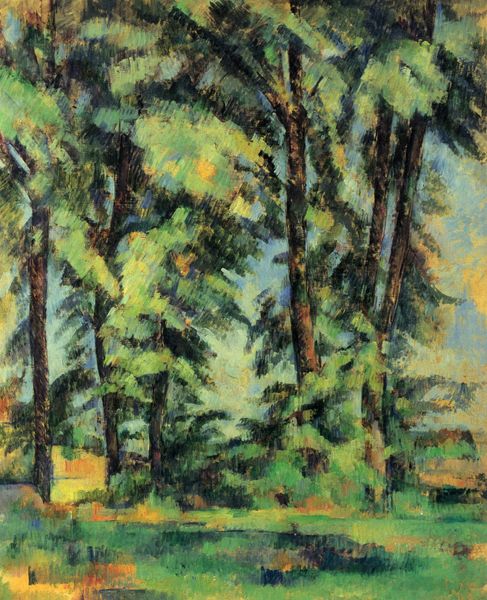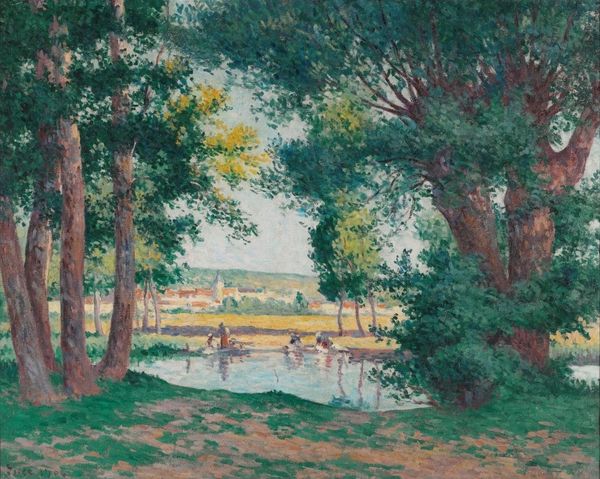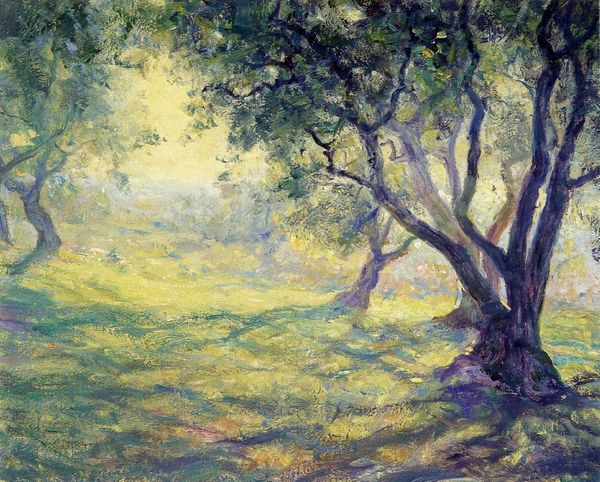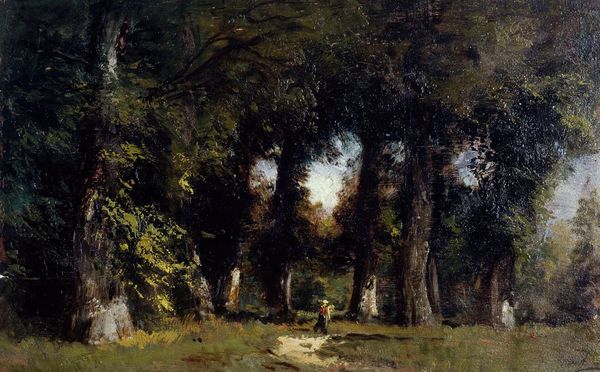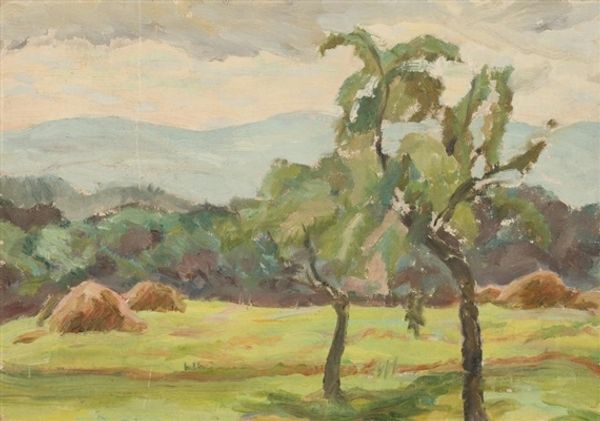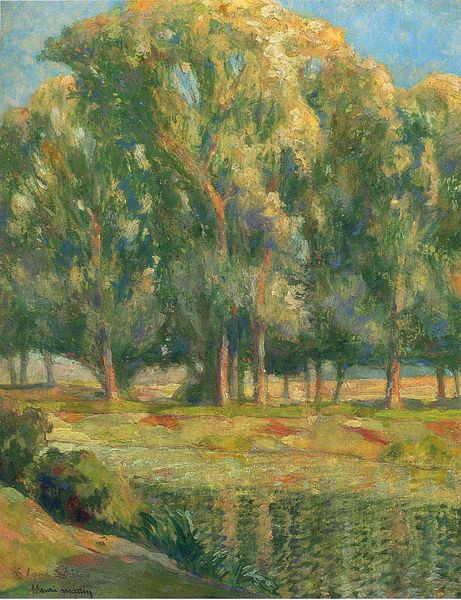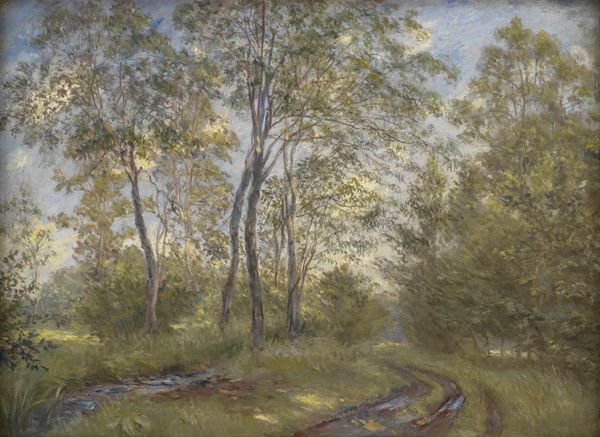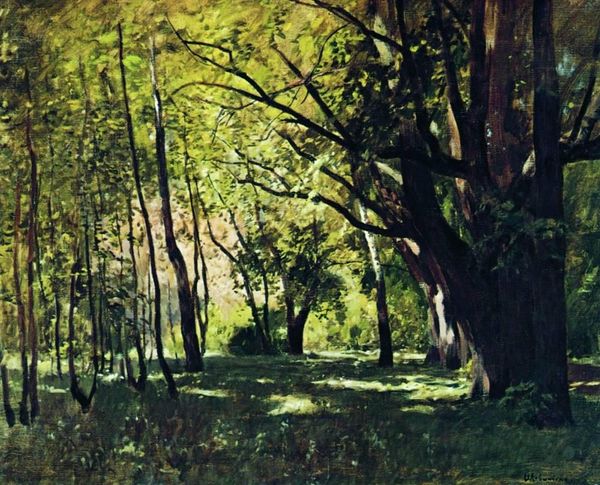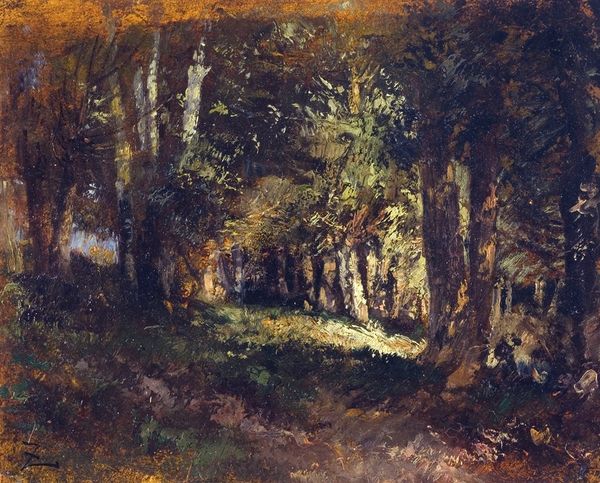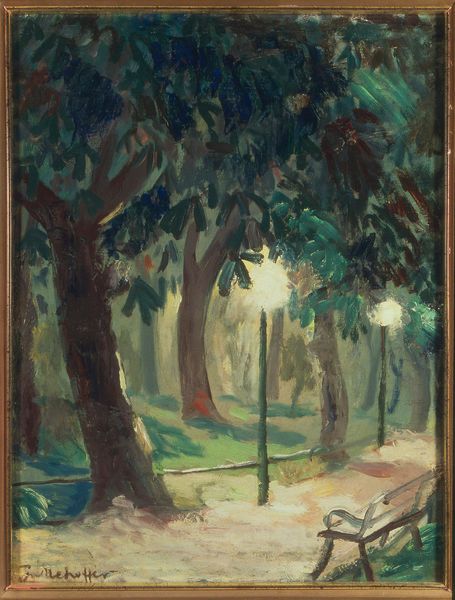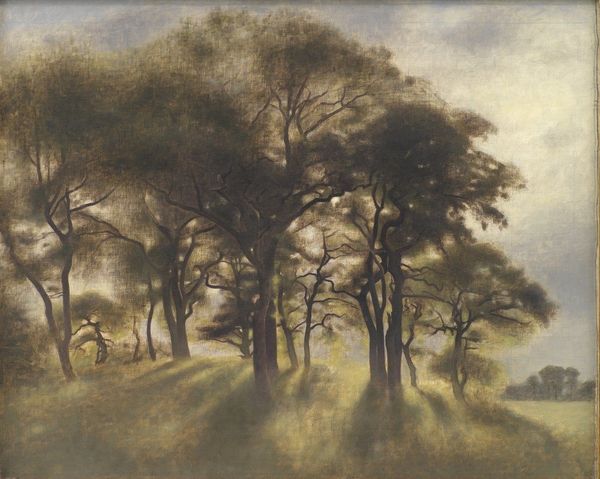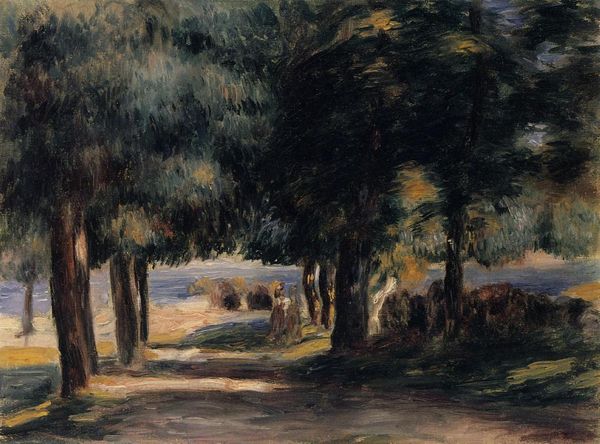
painting, plein-air, oil-paint
#
tree
#
organic
#
painting
#
impressionism
#
plein-air
#
oil-paint
#
landscape
#
impressionist landscape
#
nature
#
forest
#
plant
#
natural-landscape
#
realism
Copyright: Public domain
Curator: Welcome. Before us is "Forest Vista," an oil-on-canvas landscape, painted en plein-air by Stefan Popescu. While the exact date remains unconfirmed, the painting seems rooted in the tradition of realism, reminiscent of Impressionistic landscapes. Editor: It immediately strikes me as something from a half-remembered dream. The golden light feels nostalgic and warm, but there’s also a subtle sense of enclosure. Curator: I see what you mean. Popescu’s choice to frame the open vista with looming trees on either side certainly creates a defined space. I find myself wondering what kind of audience he had in mind when deciding to paint this particular scene. Was he focused on depicting a natural landscape, or was he, maybe, also playing with notions of framing as an exercise in visual control? Editor: It feels inherently linked to its process—plein-air painting itself challenges conventional, hierarchical structures. Here, there is a deep, democratic exploration of the way light is captured outdoors. You feel like you are with the painter at that very moment. Did that affect who saw his work or had access to that kind of thinking at the time? Curator: Access would have been influenced by so many things, I think. The distribution of art materials, gallery networks and their associated social circles... And remember, ideas around representing landscape evolved distinctly across cultures and even within artistic circles of the same period. "Forest Vista" sits quite comfortably between realist approaches and impressionist sensibilities in my mind. Editor: True. Thinking about access, what kind of societal role could art like this, of natural landscapes, play back then? Was it mostly appreciated as something beautiful for those privileged enough to have access to such landscapes—and to art more broadly? Or was there also a political element, perhaps reminding people of a rural world increasingly at odds with rapid industrial growth? Curator: I think there's value in understanding the socio-economic implications of landscape representation in a wider context, and in relation to the time it was produced. The politics of natural landscapes, especially their ownership, representation, and conservation—are very real issues even today. Editor: Absolutely, "Forest Vista", though seemingly a simple depiction of nature, offers so much when we start examining it through these wider lenses of access, social role, and evolving representation. It's not just a pretty picture, is it? Curator: Not at all. It encapsulates a moment in art history—and wider history too—inviting us to question and analyze our relationships with landscape, art, and each other. Editor: Thank you for joining me. I leave with an appreciation of just how much social relevance a landscape can hold.
Comments
No comments
Be the first to comment and join the conversation on the ultimate creative platform.
